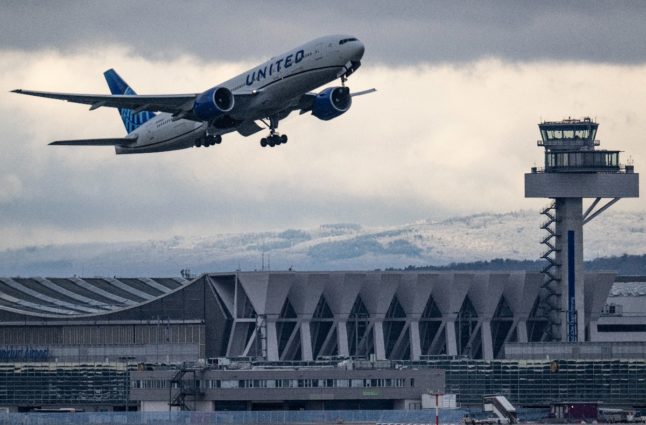What’s happening?
Anyone planning a holiday should book their flights as soon as possible. That’s because flying from Germany is likely to get more expensive in a few months’ time.
The increase in the so-called Luftverkehrsabgabe or ‘aviation taxation and subsidies’ air traffic tax is part of the measures put together by the German government to plug the budget gap of billions of euros that opened up following a judgement on borrowing by the Constitutional Court.
Despite pushback from the aviation industry, Finance Minister Christian Lindner (FDP) has now pushed through savings and tax increases planned by the coalition. At the weekend, he sent the Second Budget Financing Act to his cabinet colleagues who approved it on Monday. It shows that the higher Ticketsteuer or ticket tax will apply from May 2024 after it’s been signed off by German parliament.
How will it affect air passengers?
The tax will mean that ticket prices will go up, making air travel from Germany more expensive.
The Finance Ministry stipulates that the ticket tax will be raised to between €15.53 and €70.83.
It will rise on May 1st by almost a fifth depending on the final destination of the journey. This means that if a flight within Germany or to member states of the European Union cost €12.73 per passenger per journey in 2023, the tax will rise to €15.53 from May. For air travel of more than 6,000 kilometres, the tax will now be €70.83 per passenger instead of €58.06.
According to DPA, the cabinet approved the increases in the draft bill, which the coalition parties can now submit to the Bundestag.
Why is the government hiking up the tax?
It is a bitter pill to swallow as the cost of living for residents in Germany has been rising significantly in recent years.
But the German government has been stuck in a budget crisis following a top court ruling involving the debt brake last year, that wreaked havoc on spending plans.
This led to politicians hastily putting together savings plans.
READ ALSO: How Germany plans to solve its budget crisis in 2024
Together with a further amendment to the Aviation Tax Act, the move is expected to lead to additional revenue of €445 million in the current year. Revenue is expected to rise to €580 million in the coming years, the government estimates.
The ticket tax affects all passengers taking off from German airports. Although the airlines have to pay the surcharges, the higher taxes are passed on to passengers.
The aviation industry, though against raising taxes, had previously assumed that a higher ticket tax would be introduced in the second quarter of the year.
“With the (ticket) tax, we are covering the flights of all airlines that fly from Germany,” Transport Minister Volker Wissing recently said, while defending the plan in an interview with Handelsblatt.
Germany had initially put forward a plan to introduce a fuel tax on domestic flights, but this proposal was taken off the table.
Raising ticket tax is competitively neutral for the domestic market, said Wissing. In contrast, the initially proposed paraffin tax would have favoured “fuel tourism” and “would also have made it more difficult for us to decarbonise air traffic because it can be easily circumvented”, the Minister added.



 Please whitelist us to continue reading.
Please whitelist us to continue reading.
So basically all your summer plans better be booked before 1st of MAy 2024?